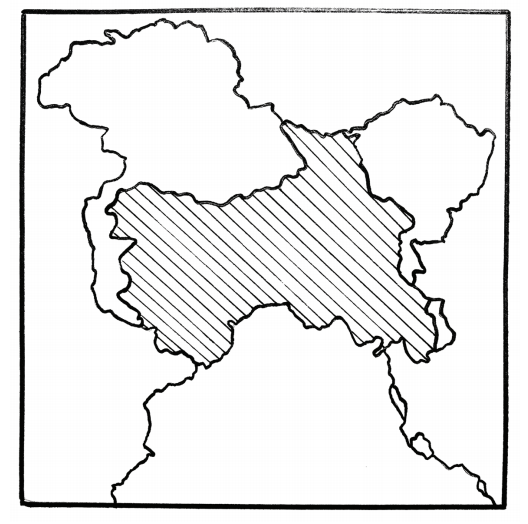A Threat to Indian Democracy

A map of Kashmir. The once-autonomous region is surrounded by larger powers, namely India, Pakistan and China.
On August 5th, the sovereign, majority-Muslim state of Kashmir underwent a drastic shift in status after the Indian government revoked Article 370 of the constitution, thereby withdrawing Kashmir’s autonomy. These abrupt actions resulted in backlash throughout Kashmir and Pakistan, so the Indian government sent in military troops and cut off Kashmir’s internet connection. However, the nullification of this article has led to an increase in political and social unrest in an area that has historically been plagued with conflict.
Not only have tensions between Muslims and Hindus escalated, but India’s democracy has been threatened as well. The only people who seemed to have been involved in the decision were those who will reap its benefits: the Indian government.
Although Pakistan and China also have stake in Kashmir, the region is often characterized as part of Northern India. Disputes over this escalated during the India-Pakistan partition of 1947 due to religious tension. While the Muslim Kashmiris wanted to join Pakistan, the Hindu and Buddhist Kashmirirs were in favor of becoming a part of India. The disagreement led to a year-long war. Since then, the region has witnessed constant conflict, including a major war over the territory in 1965 and an armed conflict in 1999. However, this recent change was one of the biggest shifts to date in terms of the sovereignty of the land.
The revocation of independence angered many Muslim Kashmiris as well as the citizens and prime minister of Pakistan, who according to Dave Lawler, an Axios news correspondent, “has repeatedly compared India’s ruling Bharatiya Janata Party (BJP) to the Nazis and warned without evidence of an ‘impending genocide’ in Kashmir.” Though the term ‘impending genocide’ is excessively severe, India’s actions go so far as to disregard Indian democracy, which sends the wrong message to governments of other democratic countries and ultimately threatens democracies worldwide.
According to Soutik Biswas, an Indian correspondent for the BBC, the ease with which this law was passed “signaled that the Indian constitution was malleable.” Math teacher Nishad Das commented, “I am not comfortable with the fact that Modi rushed this through Parliament, in a way that some questioned its legality, and without any consultation with the stakeholders that matter most, the Kashmiris.” In fact, one of the biggest issues about this change was the fact that the people of Kashmir were not a part of the discussion. The conflict has always been centered around the larger powers, India and Pakistan. Consequently, the people who are most severely affected are often ignored or seen as dispensable.
The shift in Kashmir’s autonomy was partly symbolic, as Hindu nationalists had been demanding such actions during the 1950s. Now, India has increased religious tensions between itself and Pakistan and introduced the potential for religious persecution against Muslim Kashmiris.
Arriving at a peaceful solution to this complex issue will be impossible to do immediately. I do not foresee an easy, low-stakes end to this conflict, as many different sides are involved, all with different backgrounds and motivations. Ideally, the people of Kashmir should be given an opportunity to voice their opinion and come to their own decision. In reality, however, members of the Indian government will most likely continue to make decisions for them.



